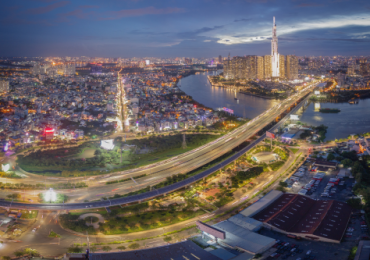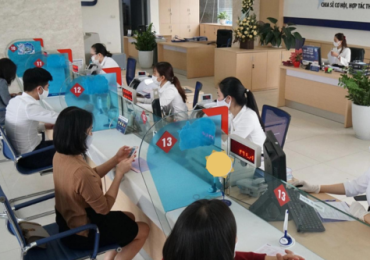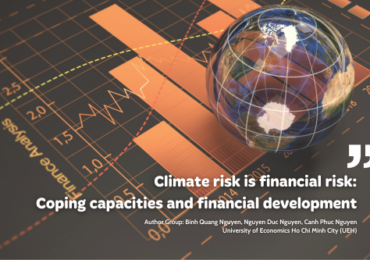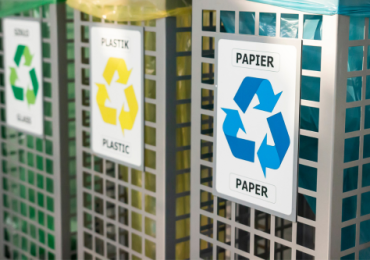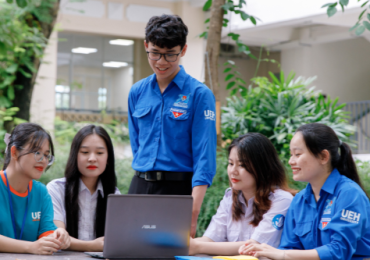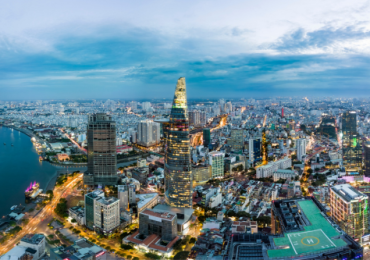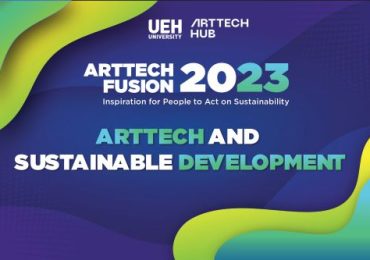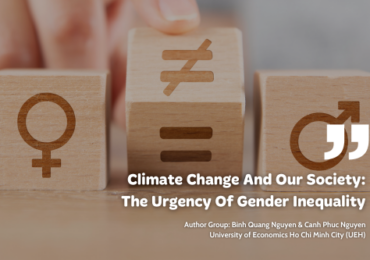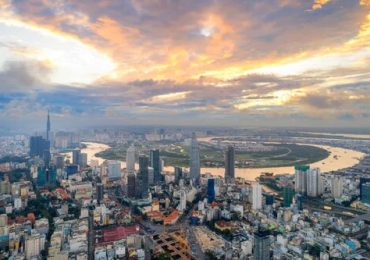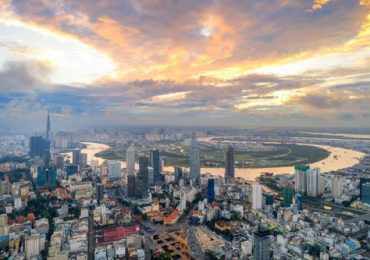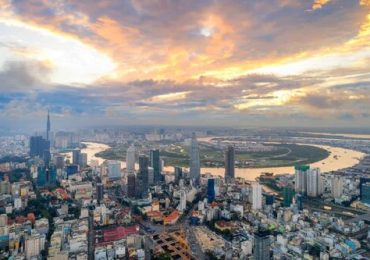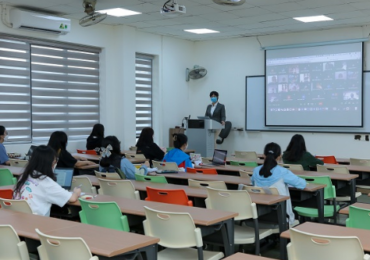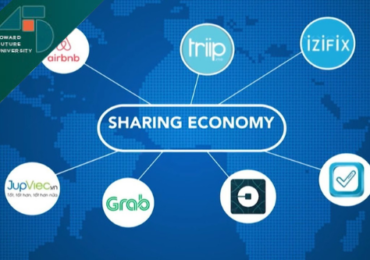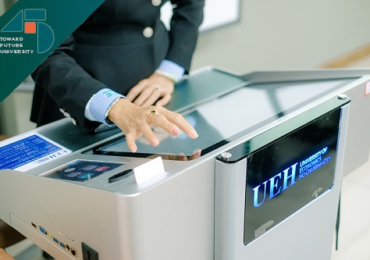[Research Contribution] Hydrogen – Opportunities and Challenges for Green Transport Development in the Mekong Delta
31 July, 2025
Keywords: Climate change, Green transport, Hydrogen, Mekong Delta
The Mekong Delta (MD), a key economic region of Vietnam, is facing many challenges in terms of transport infrastructure, especially in the context of increasingly complex climate change. The development of a sustainable, adaptive, and environmentally friendly transport system is becoming a top priority, in which the green transport model is a promising approach. Hydrogen, an emerging clean energy source in Vietnam, is expected to play an important role in reducing greenhouse gas emissions, especially through their application in fuel cell vehicles. However, the problem of refueling infrastructure and supporting ecosystems remains a major barrier. In this research paper, the authors from UEH Mekong, University of Economics Ho Chi Minh City (UEH), focused on analyzing the potential for developing green transport using hydrogen in the MD, clarifying opportunities, challenges, and suggesting feasible infrastructure solutions towards sustainable development.

Sustainable transport development in the Mekong Delta: Challenges, opportunities, and orientations for climate change adaptation
The Mekong Delta is a region that plays a strategic role in Vietnam’s socio-economic development, but is being heavily impacted by climate change. With a low and flat terrain, this region is among the most vulnerable deltas to rising sea levels and extreme weather events. Meanwhile, transport infrastructure in the Mekong Delta is limited, hindering regional connectivity and sustainable economic development. Faced with this situation, the Government has been prioritizing investment in upgrading transport infrastructure in the region. However, integrated studies on transport development and climate change adaptation, especially CO₂ emissions, have not been fully exploited. Therefore, in-depth studies are needed to propose solutions for developing transport infrastructure that is both modern and adaptable to climate change conditions, aiming at the goal of sustainable development for the entire Mekong Delta.
In that context, the article focuses on analyzing and synthesizing information and data from previous studies to clarify the concepts of “green transport” and the potential application of hydrogen energy as a new solution to adapt to climate change in the Mekong Delta. Moreover, the article also identifies opportunities, challenges, and suggests some orientations for developing green transport infrastructure for the region in particular and Vietnam in general.
Concept and theoretical approach to Green Transport
Green transport is defined as “transport services that have less negative impacts on human health and the environment than existing transport services”. This concept encompasses technological and policy solutions that optimize transport operations, aiming to reduce greenhouse gas emissions, save energy, and improve environmental efficiency. Green transport includes electric or renewable energy vehicles, and also refers to the use of biofuels, the development of efficient public transport infrastructure, the application of smart technology in transport management, and the rational organization of urban space.
The development of a green transport system brings many practical benefits, both economically, socially, and environmentally. Specifically, green transport contributes to reducing air pollution, reducing traffic congestion and accidents, saving energy, while promoting sustainable urban development and improving the quality of life for people.
Zero-emission transport and the need for transition in the Mekong Delta
In recent years, zero-emission vehicles (ZEVs) have received increasing attention in Vietnam. This type of vehicle does not generate emissions during operation, including battery electric vehicles (BEV) and hydrogen fuel cell vehicles (FCEV). Many countries have preferential policies to encourage the development of ZEV, but in Vietnam, the transition process is still slow because of an unsynchronized charging infrastructure, high investment costs, and consumer concerns. However, ZEV motorbikes are recording impressive growth, opening up many development prospects in the future.
In the Mekong Delta, personal transport is dominant, especially motorbikes and cars with fewer than 9 seats. However, this group of vehicles is also a significant source of air pollution emissions. Although each vehicle only emits moderate emissions, the total cumulative emissions based on population size and travel frequency create great pressure on the environment. This situation indicates the urgent need to find alternative solutions, in which ZEV is a suitable direction to reduce emissions, to improve air quality, and to develop sustainable transport in the region.
Hydrogen – Potential clean energy in transport and industry transformation
Hydrogen is considered a diverse and potential clean energy source that can be produced in many different ways, notably water electrolysis using renewable energy to create green hydrogen. This is a method that does not emit greenhouse gases if operated by solar or wind power, abundant energy sources in the Mekong Delta. In addition, although the method of producing hydrogen from natural gas (SMR) is popular, it causes carbon emissions if there is no accompanying capture technology. The outstanding advantage of hydrogen is that when used in fuel cells, it only emits water vapor; therefore, it is very suitable to replace fossil fuels, especially in heavy transport, ships, and industries that are difficult to decarbonize, areas that have a lot of room in the Mekong Delta.
The Mekong Delta has great advantages in developing renewable energy, especially solar and wind power, ideal energy sources for producing green hydrogen on-site. With high solar radiation, strong wind speeds in coastal provinces, and a dense river system, this region can completely combine solar and wind power to electrolyze water, creating green hydrogen for the transportation, industry, and agriculture sectors. In particular, in the context of Vietnam’s commitment to zero net emissions and receiving support from international financial institutions, the Mekong Delta has the opportunity to become a center for the production and application of green hydrogen, especially in water transport, buses, trucks, as well as industrial chains for processing clean agricultural and seafood products.
However, the development of green hydrogen in this region faces many barriers. The cost of producing and storing hydrogen is high, the refueling infrastructure is almost non-existent while the power grid is not strong enough to deploy large-scale production. The technology is new, making hydrogen-powered vehicles (buses, ships, trucks) not popular yet , along with a shortage of specialized human resources and training programs. In addition, the legal framework and support policy mechanisms are incomplete, making it difficult to attract investment. Hydrogen has to compete with other rapidly developing green technologies, like electric vehicles running on lithium-ion batteries or biofuels.
Policy Mechanism – Lever for Green Transport and Hydrogen Energy Development
To promote the development of zero-emission transport and effectively exploit the potential of hydrogen energy in the Mekong Delta, the authors suggest some key policy directions as follows:
First, building and developing a synchronous and large-scale hydrogen refueling infrastructure system, with priority given to urban areas, industrial zones, river ports, and key transport routes in the Mekong Delta region. This system needs to be integrated with the power grid, gas pipeline network, and existing filling stations to optimize costs and to create a foundation for hydrogen applications in water transport, buses, trucks, and cruise ships.
Second, issuing investment incentive mechanisms and promoting public-private partnerships (PPP) in the clean energy sector, especially hydrogen. Measures could include corporate income tax exemptions/reductions, green credit incentives, research and development (R&D) support, and subsidies in the early stages of implementation. Facilitating financial and administrative procedures will attract domestic and foreign investors to participate in the hydrogen value chain.
Third, completing the legal framework and technical standards for hydrogen, including regulations on safety, operation, inspection, and licensing of vehicles, facilities for hydrogen production, storage, and distribution. In addition, there needs to be a strategy for human resource development, technology transfer, and training of technicians to serve the long-term operation of this new energy system.
Finally, economic instruments like CO₂ emissions taxes should be used to adjust market behavior in a more environmentally friendly direction. These taxes can be levied on high-emission vehicles or businesses, and accompanied by incentives for clean energy vehicles such as electric and hydrogen vehicles. Tax revenues should be reinvested in the development of refueling stations, green public transport, and upgrading local power grids.
From the analysis of the potential, current status, and policy proposals mentioned above, the application of hydrogen energy in green transportation in the Mekong Delta not only contributes to reducing greenhouse gas emissions but also opens up a sustainable direction for transport infrastructure development in the context of climate change. Although there are many challenges, like investment costs, hydrogen storage, and distribution technology, with appropriate support policies and cooperation between stakeholders, hydrogen has the potential to become a key energy source in Vietnam’s green transportation system. This not only helps improve environmental quality but also promotes economic development and enhances the quality of life for people in the region.
The full-text research article on Hydrogen – Opportunities & Challenges for Green Transport Development in the Mekong Delta can be accessed HERE
Authors: Nguyen Dang Khoa, Phan Minh Bao An – University of Economics Ho Chi Minh City
This article is part of a series spreading research and applied knowledge with the message “For a More Sustainable Mekong”, part of the program “Research Contribution For All – Research for the Community” implemented by UEH. UEH cordially invites readers to the next UEH Research Insights newsletter.
News and photos: The authors, UEH Mekong Department of Admissions and Communications, UEH Department of Communications and Partnerships
Audio: Thanh Kieu

[Podcast] Recommendations for University education development
14 February, 2025
[Podcast] Developing Vung Tau into a World-Class Tourism City
16 January, 2025
[Podcast] Postdigital Design Strategies for Media Art
6 January, 2025
[Podcast] NFTs – Artistic Innovation or Just a New Hype?
27 December, 2024
[Podcast] Boosting Employee Creativity with Constructive Feedback
23 November, 2024
[Podcast] “Dutch Disease” in Remittances and the Case of Vietnam
4 November, 2024
[Podcast] Latest approaches for sustainable universities
11 July, 2024
Data Law – Part 1: Necessity for a New Approach
18 May, 2024
Advertising Evaluation on Tiktok Platform
14 May, 2024
[Podcast] Advertising Evaluation on Tiktok Platform
13 May, 2024
Promoting Learner Autonomy in English Language Learning (Part 1)
24 November, 2023
ArtTech And Sustainable Development
27 October, 2023
Motivation of EFL Vietnamese Students in Economics-related Majors
12 October, 2023
Climate Change And Our Society: The Urgency Of Gender Inequality
12 October, 2023
People Analytics in Vietnam
10 March, 2022
Revolution in Experimental Economics
30 January, 2022
The Sharing Economy: Governance Issues in Vietnam
24 January, 2022
Employment Policy For Ho Chi Minh City in Post-social distancing Period
28 December, 2021
Lifelong learning at UEH: Towards a Sustainable University
28 December, 2021
Building a Decentralized Stock Market based on Blockchain Technology
24 December, 2021
Consumer price index from big data mining perspective (Big data)
17 November, 2021
Overview Of Digital Currency – Part 5: DIEM Private Stabilized Currency
11 November, 2021



























































































































































